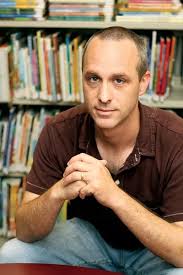Ein Zitat von Thomas Huxley
Die Bevölkerungsfrage ist das eigentliche Rätsel der Sphinx, auf das noch kein politischer Ödipus eine Antwort gefunden hat. Angesichts der verheerenden Auswirkungen des schrecklichen Monsters Übervervielfachung versinken alle anderen Rätsel in der Bedeutungslosigkeit.
Verwandte Zitate
Aber die Lösung des Rätsels von Leben, Raum und Zeit liegt außerhalb von Raum und Zeit. Denn wie inzwischen vollkommen klar sein sollte, kann nichts innerhalb eines Rahmens etwas über diesen Rahmen aussagen oder auch nur danach fragen. Die Lösung besteht also nicht darin, eine Antwort auf das Rätsel der Existenz zu finden, sondern in der Erkenntnis, dass es kein Rätsel gibt. Dies ist die Essenz der schönen, fast Zen-buddhistischen Schlusssätze des Tracticus: „Für eine Antwort, die nicht ausgedrückt werden kann, kann auch die Frage nicht ausgedrückt werden. Das Rätsel existiert nicht.“
Die Lösung dieses Rätsels hat ein Loch in der Mitte, und es ist bekannt, dass einige hineinfallen. Im Tennis ist es nichts, aber es kann angenommen werden, und manchmal kann es sein, dass jemand es gewinnt. Auch wenn man es nicht sieht oder hört, kann man es wahrnehmen. Wie Prinzen oder Bienen ist es im Klee. Die Lösung dieses Rätsels hat ein Loch in der Mitte, und ohne sie kann man nicht von vorne beginnen.
Der Wissenschaftler spricht nicht gern über das Rätsel des Universums. „Rätsel“ ist kein wissenschaftlicher Begriff. Die Vorstellung eines Rätsels ist „etwas, das gelöst werden kann“. Und deshalb verwendet der Wissenschaftler diese populäre Phrase nicht. Wir wissen nicht, warum. In dieser Angelegenheit sind wir nicht weiter fortgeschritten als der Höhlenbewohner. Der Wissenschaftler ist zufrieden, wenn er etwas zum Wissen darüber beitragen kann, was ist und wie es ist.
Es gibt nicht nur keine Garantie für die zeitliche Unsterblichkeit der menschlichen Seele, das heißt für ihr ewiges Überleben nach dem Tod; aber auf jeden Fall verfehlt diese Annahme völlig den Zweck, den sie immer verfolgt hat. Oder wird ein Rätsel dadurch gelöst, dass ich für immer überlebe? Ist dieses ewige Leben selbst nicht ebenso ein Rätsel wie unser gegenwärtiges Leben?
































